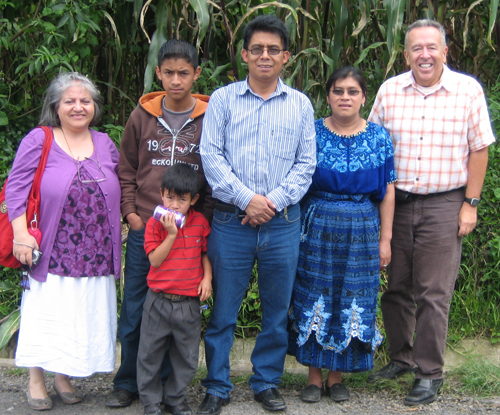
Bill Fairbairn’s 1983 BA in French and international development has taken him to Central and South America, not as a tourist, but as a human rights advocate.
“Guelph really opened up a lot of possibilities for me,” he says. “A lot of the work I’ve done is the direct result of the studies I undertook at Guelph.”
Fairbairn’s love for languages as a high school student drew him to the University’s language labs. But he wanted to experience life abroad before pursuing a post-secondary education, so he spent three years in Belgium and France.
“It was at that point that I realized how much I didn’t know, so when I came back to Canada, I was quite motivated to go back to school and learn,” says Fairbairn. While attending Guelph, he received a scholarship to study at the University of Ottawa for one year and spent a semester in Guatemala, where he studied Spanish and indigenous history. “My degree is from Guelph, but it came from different places,” he says.
Witnessing human rights violations in Guatemala inspired him to take action. When he returned to Guelph, he helped establish the Latin American Solidarity Group along with OPIRG to raise awareness of human rights abuses in Central and South America. After graduating, he worked with a coalition of Canadian churches, travelling throughout Central America to collect testimony from victims of human rights abuses for the United Nations Human Rights Commission.
Fairbairn also worked as an international election observer during South Africa’s first democratic election in 1994. To guard against election fraud, he slept next to the ballot boxes at night. He says some of the voters were so frail, they needed to be transported to the polling stations in wheelbarrows. One such voter brought a ruler with her. Puzzled, Fairbairn told her that she didn’t need a ruler to mark an “x” in the box. She replied, “I’ve waited so long, I wanted my ‘x’ to be perfect.”
Fairbairn is now the Mesoamerica program co-ordinator for Horizons of Friendship, an organization that focuses on development issues such as health, human rights, poverty and sustainable agriculture in Central America.
He advises students interested in a career in international development to seize every opportunity to study abroad. The University’s Centre for International Programs offers field trips, exchanges and semesters at academic institutions all over the world.